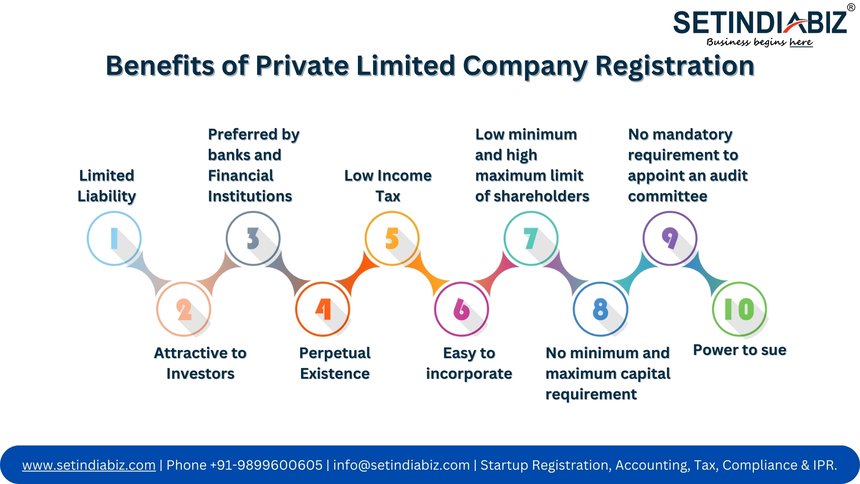
Top 10 Benefits of Private Limited Company
1. Limited Liability
2. Attractive to Investors
3. Preferred by banks and Financial Institutions
4. Perpetual Existence
5. Low Income Tax
6. Easy to incorporate
7. Low minimum and high maximum limit of shareholders
8. No minimum and maximum capital requirement
9. No mandatory requirement to appoint an audit committee
10. Power to sue
Startups often face multiple dilemmas while deciding whether to incorporate their businesses or not. This is primarily due to the hefty cost involved in the process of incorporation and related compliances, which startups struggle to afford in the initial stages of their business. However, they often fail to realize that the disadvantages and penalties for not getting incorporated, far exceed the cost of incorporation. As far as the legal status is concerned, startups are anyway permitted to get incorporated as a private limited company, an LLP, or a partnership firm only. Out of these, a private limited company is the most viable option, especially when compared to the other two. The reasons for the same have been discussed above to provide a thorough understanding of the benefits of private limited companies in India.


I’m pleasantly surprised by the low income tax rates offered to shareholders of startups registered as private limited companies. It’s a significant incentive for entrepreneurs like me to take the leap and formalize our businesses. Thanks for sharing this useful information with us. I will try to visit your blog again for more useful information.